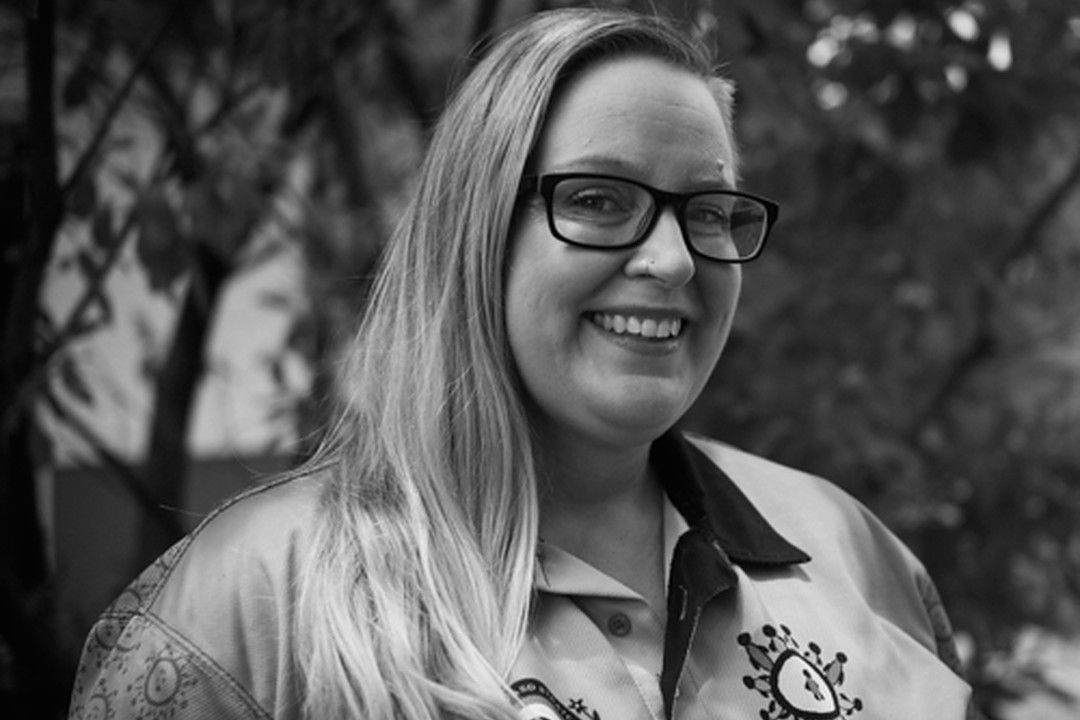
Exploring technology use with Indigenous elderly for health and well-being
University of Saskatchewan (USask) post-doctoral fellow Dr. Cari McIlduff (PhD) has been awarded $45,000 from AGE-WELL and the Saskatchewan Health Research Foundation (SHRF) to learn which technology and telehealth services older Indigenous people would like to use for support in leading a healthy lifestyle.
By Federica Giannelli, USask Research Profile and ImpactMcIlduff is one of 21 early career researchers from 10 institutions across Canada who have been awarded the AGE-WELL graduate student and post-doctoral awards which are co-funded by AGE-WELL and SHRF. AGE-WELL is a federally funded Network of Centres of Excellence established in 2015 to support Canadian research and innovation in the area of technology and aging.
“Many Indigenous older adults would like to learn more about technology and recognize the value of technology in supporting healthy aging,” said McIlduff, who works with the Morning Star Lodge research team under the supervision of Dr. Carrie Bourassa (PhD), a professor with the USask College of Medicine.
“But as research at the Morning Star Lodge has previously found, not everyone has access to technology or knows how to use it. My research will assist with that gap.”
Over the one-year project, McIlduff will support Star Blanket Cree Nation urban members in southern Saskatchewan to understand which health apps the Indigenous elderly think they would most benefit from using and which ones they see as being appropriate and culturally safe. The elderly participants will be given electronic tablets and an unlimited data plan, as needed.
Services to be tested may include apps to virtually access doctors and mental health resources to learn about diabetes, Alzheimer’s, and dementia, and apps to learn Cree, Dakoda, Saulteaux, and Nakoda languages.
She said her community-led research on Indigenous telehealth needs could benefit Indigenous people in urban settings who may feel unsafe or intimidated when visiting clinics and also remote communities where access to healthcare services often requires long drives.
“Due to the COVID-19 pandemic, many Indigenous older adults avoid going to clinics out of fear of getting sick,” she said. “Because many have pre-existing medical conditions such as diabetes, they are a very high-risk population, so we are thinking that online health and wellness services could be a possible solution.”
McIlduff will combine a community-led research model developed by Bourassa with her own model to further her knowledge around best practices in working with Indigenous Peoples internationally. McIlduff developed the Model of Engaging Communities Collaboratively or MECC with Indigenous communities in five countries—Australia, New Zealand, Canada, the U.S., and Panama—as part of her PhD at the University of Queensland in Australia.
“From a young age, I learned the importance of inclusiveness and fighting racism from my mom, and have grown up surrounded by Indigenous Canadian friends, family and mentors. So I decided to dedicate my life to supporting and promoting Indigenous community-led social change and research agendas based on each community’s needs,” she said.
“Working with Dr. Bourassa, an internationally recognized leader in Indigenous health research, I know I’ll have many opportunities to do this work in a good way led by communities. The chance to be mentored by her was the prime reason for me moving back home to Canada from Australia.”
Bourassa, who is also director of the USask-based Institute of Indigenous Peoples' Health of the Canadian Institutes of Health Research, has led AGE-WELL-funded health research projects related to exploring rural and remote Indigenous technology needs. She sees a link between telehealth and pandemic preparedness.
“There is significant need for pandemic preparedness work to be done with Indigenous communities using telehealth, such as in the case of lockdowns caused by epidemics and natural disasters, and this work could inform part of that preparedness,” she said.
Federica Giannelli is a CGPS-sponsored graduate student intern in the USask Research Profile and Impact unit.

